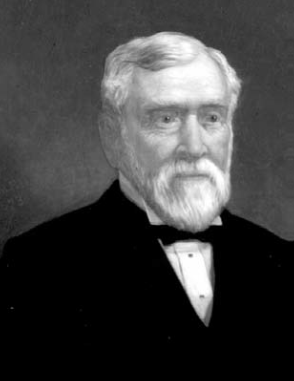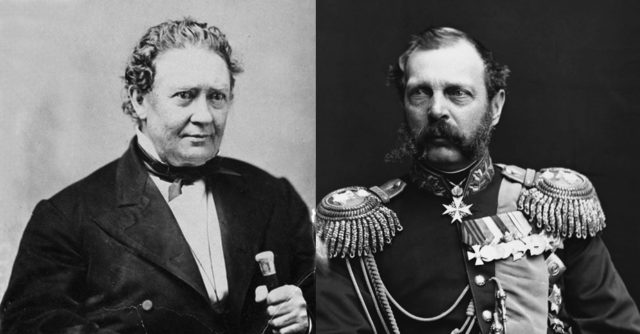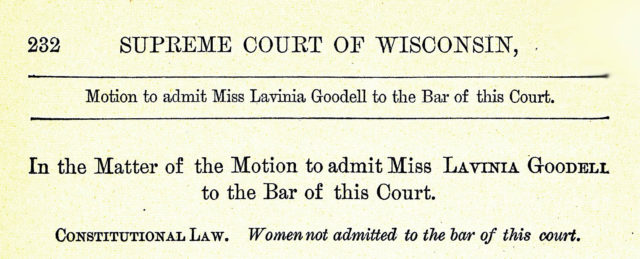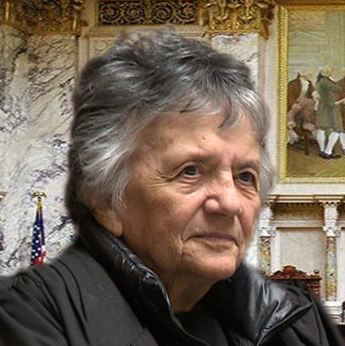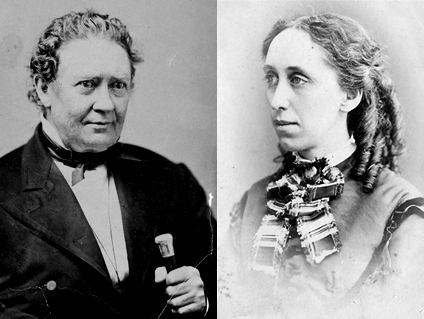“To stifle the longings of an immortal soul to follow any useful calling in this life is a departure from the order of nature.”
Attorney Ada M. Bittenbender, writing about Lavinia Goodell
In 1891, eleven years after Lavinia Goodell’s death, Henry Holt published a book titled Woman’s Work in America.

Edited by Annie Nathan Meyer, founder of Barnard College, New York’s first liberal arts college for women, the book contained chapters on women in various professions. In the introduction, Julia Ward Howe (a writer, abolitionist, and suffragist best known for writing the Battle Hymn of the Republic) wrote, “The theory that women should not be workers is a corruption of the old aristocratic system.” Ms. Howe went to note that a speaker at a Massachusetts legislative hearing had recently asked why women did not enter the professions. Ms. Howe said, “One might ask how he could escape knowing that in all of these fields … women are doing laborious work and with excellent results?”
Lavinia Goodell was featured prominently in Chapter nine of the book, “Women in Law.” The chapter was written by Ada M. Bittenbender, the first woman admitted to practice before the Nebraska Supreme Court and the third woman admitted to practice before the United States Supreme Court.

Ms. Bittenbender recounted Lavinia’s battle to be admitted to practice before the Wisconsin Supreme Court and quoted at length Chief Justice Ryan’s opinion denying her petition. Ms. Bittenbender predicted that Ryan’s opinion “will be read with interest and remain of historic value as showing the fossilized misconceptions woman combated with in attaining the generally acceptable position in the legal profession in this country which she now holds.”
Continue reading →